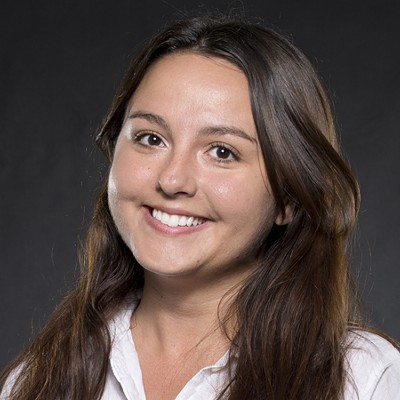For two years, Rowzee Ryburn worked at a needle-exchange program in Melbourne, Australia. She’d tally the inventory and provide clean syringes to anyone who came in. Then, two years ago, the 35-year-old moved to Lake Worth to be closer to friends. She currently works as a landscape artist, but her new passion is trying to start a needle-exchange program in Lake Worth.
“Syringe exchange is a human rights issue,” Ryburn says. “Everyone is entitled to their health and well-being.”
It took four legislative sessions, but last month the Florida Legislature passed the Infectious Disease Elimination Act. The bill currently is awaiting Gov. Rick Scott's signature. Assuming he signs it, it will establish Florida’s first needle exchange at Jackson Hospital in Miami. Now, Ryburn is also working to bring a similar needle exchange to Lake Worth.
“I think [passing the Infectious Disease Elimination Act] set a precedent for Florida," she said. "It gives me hope that syringe exchanges can spread. Hopefully, it will be seen as a positive example.”
Ryburn's mission began in January, after she protested at a City Commission meeting in Lake Worth. Activists were opposed to a city ordinance that extended regulations that apply to public parks and made them apply to all public city property — meaning that areas such as City Hall would have a curfew and anyone trespassing after hours could face arrest. It was seen as a move to criminalize homelessness. Ryburn remembers that one of the commissioners cited dirty needles as a reason to keep people off public property at night.
“It was rubbish,” Ryburn says. “I couldn’t stop thinking how I used to work at a needle exchange in Melbourne and knew that harm reduction brings down the instances of blood-borne viruses.”
After the meeting, she began her research. She found that the North American Syringe Exchange Network has start-up boxes of syringes, gauze, and other supplies for $1,200 to $1,400. Now she is hoping to get city commissioners onboard with her idea.
It’s still a little tricky, though. Even though the law passed this session allows a needle exchange in Miami, it remains illegal to possess a syringe without a prescription outside of that program. Under Florida statutes, a syringe is considered drug paraphernalia. Technically, a municipality like Lake Worth is not supposed to enact any ordinance that is in direct conflict with state law. But just as some cities are opting to let police issue civil fines instead of criminal arrests for possession of marijuana, city commissioners could reduce the penalty for possessing syringes.
Harm-reduction activists like Carlos Franco have grown frustrated trying to legally bring a needle exchange to South Florida. For the past 25 years, Franco has saved up his money to order syringes online and pass them out to low-income intravenous drug users around South Florida. He has never been caught, but what he’s doing is considered a third-degree felony — delivering drug paraphernalia.
“There’s always been a stigma about helping drug users,” Franco says. “Legislators are so disconnected from what happens on the street. These are people’s brothers, sisters, and children.”
Ryburn has been speaking with Franco. She has considered copying Franco, going rogue, and bringing an underground needle exchange to Lake Worth. But first, she says, she’s going to try doing it the legal way.
"I really think there's a way to use these laws that the city is using against people, to criminalize homelessness, and instead use it to uplift people and alleviate problems," she says.
[
{
"name": "GPT - Billboard - Slot Inline - Content - Labeled - No Desktop",
"component": "16971022",
"insertPoint": "2",
"requiredCountToDisplay": "2"
},{
"name": "Editor Picks",
"component": "15769925",
"insertPoint": "4",
"requiredCountToDisplay": "1"
},{
"name": "Inline Links",
"component": "16575154",
"insertPoint": "8th",
"startingPoint": 8,
"requiredCountToDisplay": "7",
"maxInsertions": 25
},{
"name": "GPT - Rectangle 2x - Slot Auto-select - Labeled",
"component": "15782206",
"insertPoint": "8th",
"startingPoint": 8,
"requiredCountToDisplay": "7",
"maxInsertions": 25
},{
"name": "Inline Links",
"component": "16575154",
"insertPoint": "8th",
"startingPoint": 12,
"requiredCountToDisplay": "11",
"maxInsertions": 25
},{
"name": "GPT - Leaderboard to Tower - Slot Auto-select - Labeled",
"component": "15782207",
"insertPoint": "8th",
"startingPoint": 12,
"requiredCountToDisplay": "11",
"maxInsertions": 25
}
]











